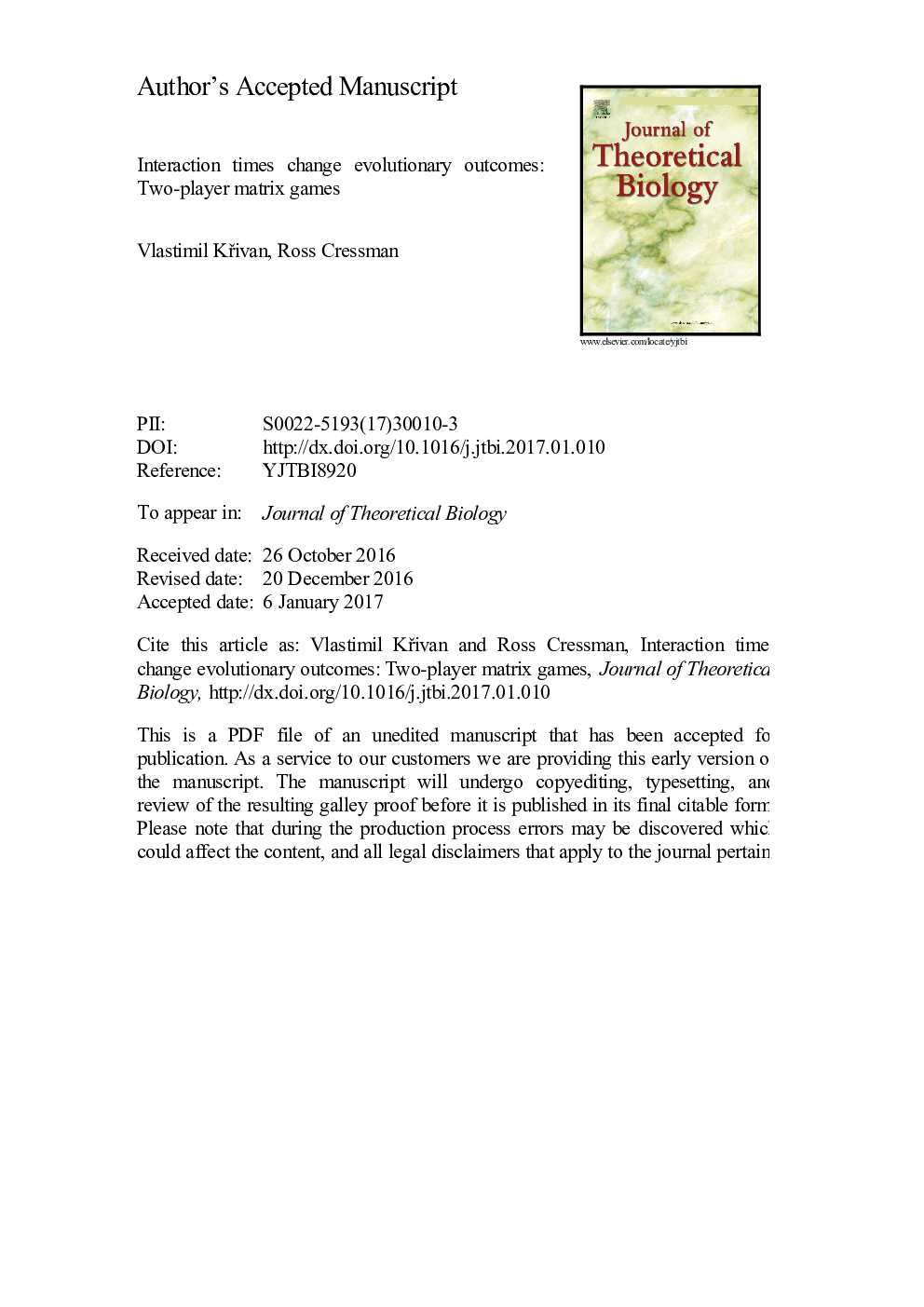| Article ID | Journal | Published Year | Pages | File Type |
|---|---|---|---|---|
| 5760177 | Journal of Theoretical Biology | 2017 | 22 Pages |
Abstract
Two most influential models of evolutionary game theory are the Hawk-Dove and Prisoner's dilemma models. The Hawk-Dove model explains evolution of aggressiveness, predicting individuals should be aggressive when the cost of fighting is lower than its benefit. As the cost of aggressiveness increases and outweighs benefits, aggressiveness in the population should decrease. Similarly, the Prisoner's dilemma models evolution of cooperation. It predicts that individuals should never cooperate despite cooperation leading to a higher collective fitness than defection. The question is then what are the conditions under which cooperation evolves? These classic matrix games, which are based on pair-wise interactions between two opponents with player payoffs given in matrix form, do not consider the effect that conflict duration has on payoffs. However, interactions between different strategies often take different amounts of time. In this article, we develop a new approach to an old idea that opportunity costs lost while engaged in an interaction affect individual fitness. When applied to the Hawk-Dove and Prisoner's dilemma, our theory that incorporates general interaction times leads to qualitatively different predictions. In particular, not all individuals will behave as Hawks when fighting cost is lower than benefit, and cooperation will evolve in the Prisoner's dilemma.
Related Topics
Life Sciences
Agricultural and Biological Sciences
Agricultural and Biological Sciences (General)
Authors
Vlastimil KÅivan, Ross Cressman,
